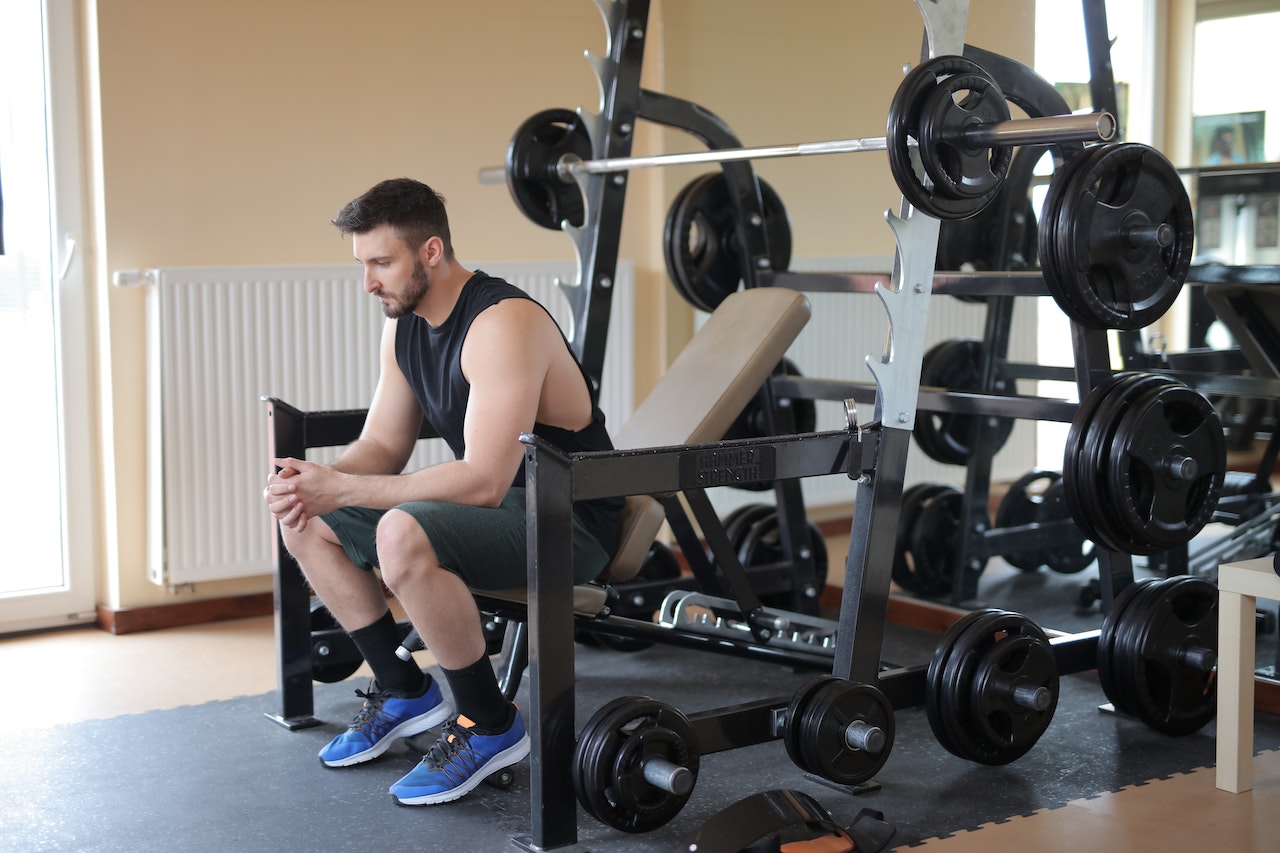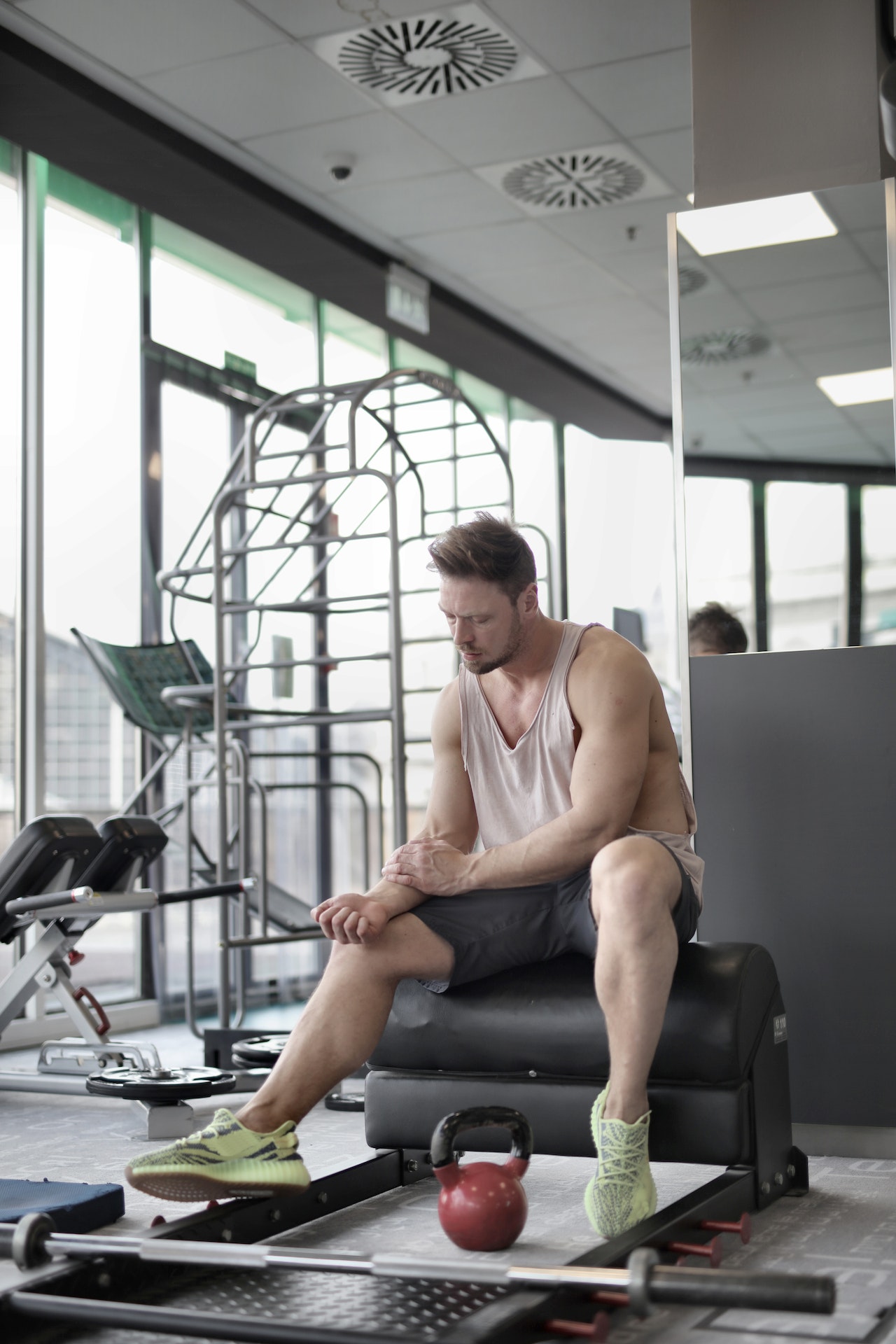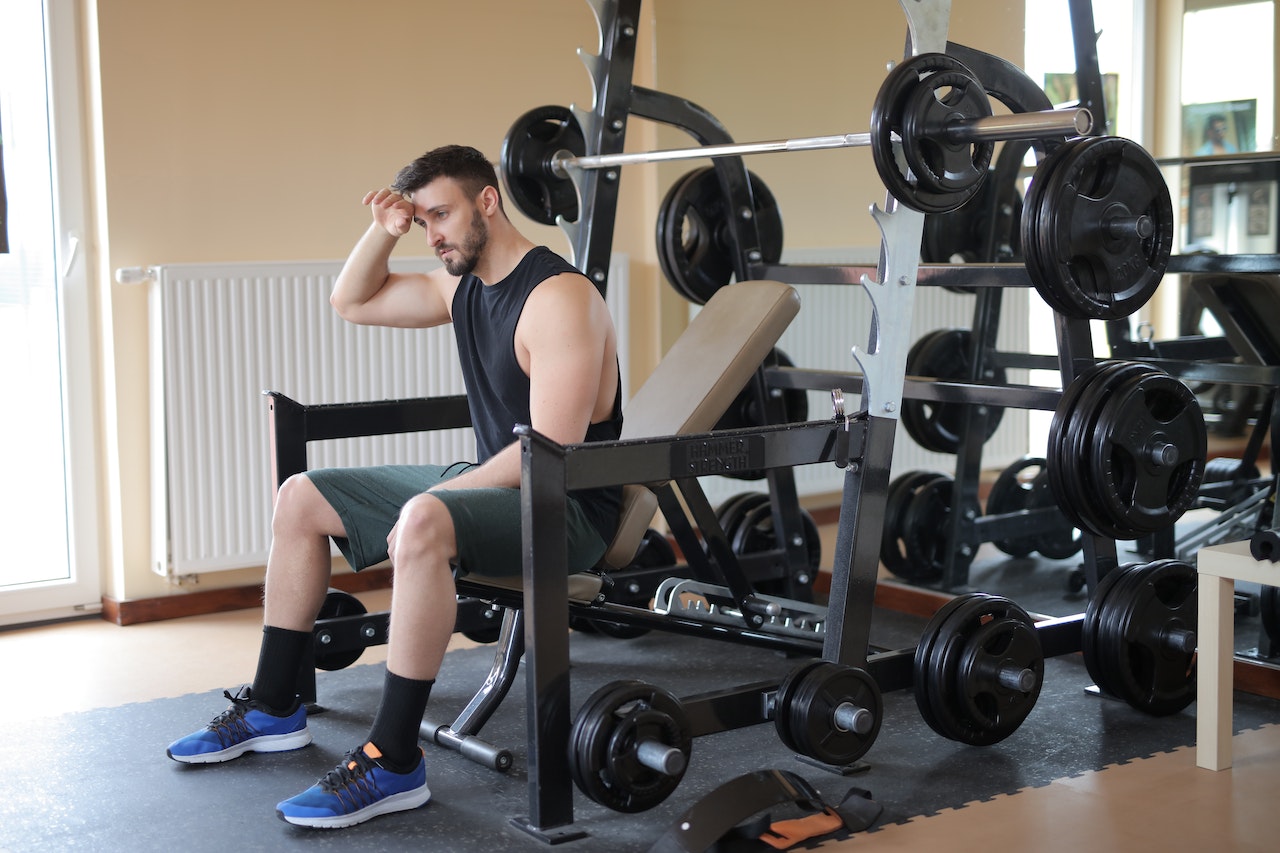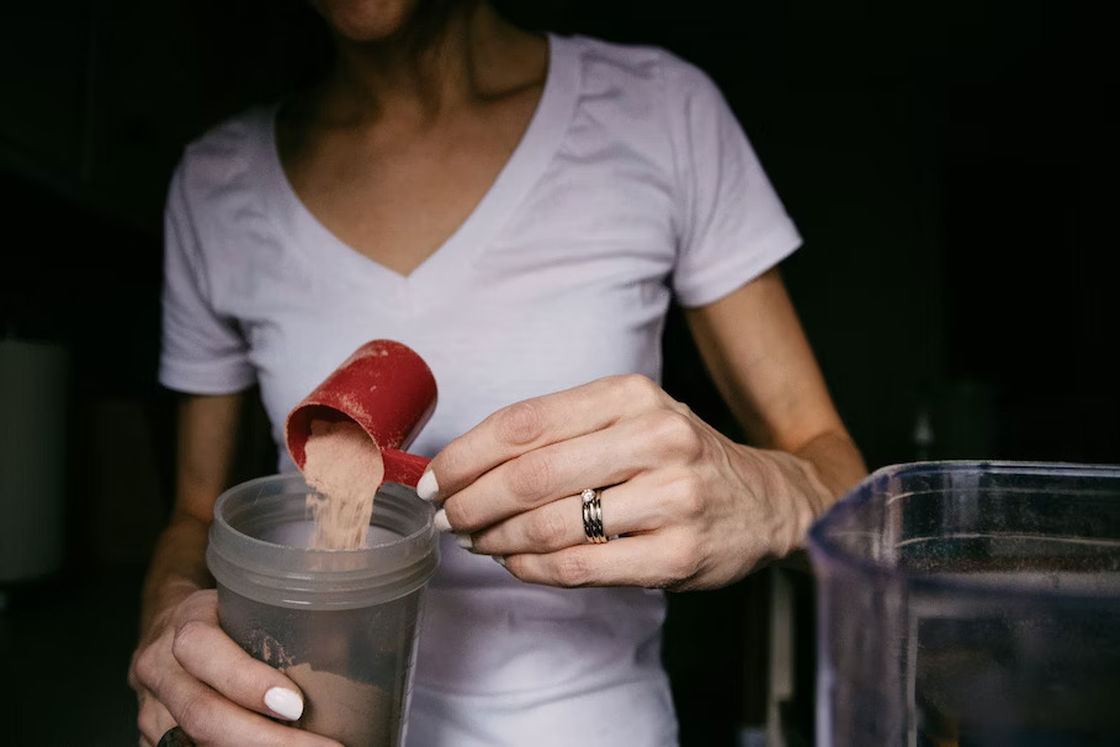Creatine is a naturally occurring compound in human muscle cells. It is an amino acid that can help athletes perform better during intense physical activity. When used in conjunction with a strength training routine, it can help you grow larger and fuller muscles while improving strength. Creatine is manufactured in the body but to attain maximum benefits, supplementation is used to saturate the muscle cells with creatine.
So if you already know the benefits of creatine, you likely want to know what happens when you stop taking it. Let’s find out.
What Happens When You Stop Creatine?
Stopping creatine supplementation decreases your lean muscle mass and strength gradually. The natural creatine production in the body also decreases, leading to a loss of energy, an increase in fatigue when performing high-intensity workouts, and a decline in water weight. This means that you will not be able to exercise as you used to when supplementing creatine.

So, what makes people stop creatine? Many reasons can lead someone to stop taking creatine. For instance, you may want to stop creatine when you want to stop your routine exercise for various reasons. Other people stop taking creatine when they experience digestive problems such as minor bloating (one of the side effects of creatine supplementation). No matter what your personal reason is, it’s important to understand what will happen when supplementation stops.
Some users experience side effects when stopping creatine monohydrate supplementation. The good news is that these side effects will disappear after a certain period (about three weeks). Also, no evidence suggests permanent damage to organs synthesizing creatine when you halt it.
Notable Changes of Stopping Creatine
Creatine supplementation is an adenosine triphosphate (ATP) powerhouse that provides muscle energy. It also helps power the brain, coordinating all body parts to function correctly. However, there are times you have to stop taking these supplements. So, what happens when you stop? Here are some of the changes you may experience:
Lower Creatine Levels
This is the first effect experienced when you stop taking creatine. Generally, your body can produce creatine on its own, and taking supplements (also obtained from dietary sources, such as meat and fish) lowers the natural creatine production. This helps to maintain the optimal level of creatine in your body (baseline).
Therefore, when you stop taking your creatine supplements, the creatine in your body will drop gradually until the body starts manufacturing more on its own. This usually takes two to three weeks following cessation of supplementation. However, the rate at which your levels of creatine drops depends on various factors, such as gender, physical activity level, and age.
Increase in Fatigue
When you stop taking creatine, the body may suddenly experience fatigue, especially in the gym or when doing any physical activity. This is because there is reduced adenosine phosphate (ATP) production, which provides the muscles with enough energy.
When you have reduced ATP, you may experience increased fatigue, leading to tiredness and exhaustion. It is vital to understand the effects of stopping creatine as the level of fatigue varies from one individual to the other. Some people may not feel the fatigue at all.
On the other hand, if you feel increased fatigue after stopping your supplementation, it is advisable to increase your meat and fish intake to offset those effects. As always, you should focus on maintaining a healthy diet while exercising daily to help regain your lost energy. Some foods that may help you gain energy include lean proteins, whole grains, unprocessed foods, and drinking more water.

Decrease in Muscle Mass
Creatine builds your muscle by drawing and retaining water into the muscle cells. This water retention is what helps build and strengthen your muscles. Therefore, when you stop taking creatine, your body will return to its baseline level, losing muscle mass and strength.
The best thing about this effect (reduced muscle mass) is that it may go unnoticed (in some people) if you continue with routine exercise. This will likely take two to four weeks for the added water stores to deplete.
Loss of Body Weight
Loss of body weight is another notable effect when you stop taking creatine. Creatine supplements help your muscles draw and retain water. When your muscles retain water, you will experience increased body weight. Therefore, creatine withdrawal makes your body lose the excess water, leading to a decrease in total body weight.
It is always important to note that this is a temporal effect and should not be confused with the decrease in lean muscle mass. This is the loss of body water in the muscles, while a reduction of muscle mass is the loss of water and strength.
Loss in Muscle Strength
Muscles are what power you when exercising. The same muscles are powered by adenosine triphosphate (ATP). ATP reacts with creatine (through an enzyme creatine kinase) to produce phosphocreatine. Phosphocreatine is stored in the muscles and provides the energy needed during a workout.
When you stop taking creatine, there will be less production of phosphocreatine, leading to a loss in muscle strength and reach muscle fatigue quicker. However, you should not worry when this happens because your body will adapt to the absence of creatine over time. Remember to focus on a healthy diet to help your body manufacture the needed creatine.
Minor Activation in Creatine Transport
Creatine needs to be activated and transported to the body’s muscles to perform its function correctly. It reacts with an enzyme (enzyme kinase) to form phosphocreatine which provides the muscle cells with the energy required when working out.
Therefore, creatine supplementation helps convert the creatine in the body to phosphocreatine, which is transported to the required cells. This helps to maintain the intercellular creatinine level. So, if you stop creatine, there will be a decline in phosphocreatine conversion and transportation to the required muscle.
Brain Fog or Less Mental Focus
While most people take creatine monohydrate supplements to provide energy to the muscles, they forget that it is also an ideal component in optimal brain function. Creatine helps improve cognitive function and works much the same as it does in muscle tissue. It helps trigger the brain to function correctly by providing the needed energy and neuroprotection to perform at your best.

A decrease in creatine will affect the brain, leading to less mental focus. However, don’t panic when this happens because it is potentially temporary. You should aim to workout regularly and focus on a healthy diet. This way, the body will adjust and regain normalcy after some time.
What Does Creatine Do in Your Body?
Creatine is a naturally occurring compound that provides many benefits for your body, especially if you are an athlete or like hitting the gym. The body manufactures it in the liver, pancreas, and kidney. It can also get creatine from red meat, seafood, or supplements. So, what does this substance do in your body and what could you lose if you stop taking creatine?
- It increases muscle mass and strength: Creatine supplementation improves muscle strength and high-intensity performance. It does this by increasing the production of adenosine triphosphate (ATP), which gives the muscle more energy during workouts or when doing any other physical activity.
- It increases power output during high-intensity exercise: Creatine monohydrate reacts with enzyme kinase to produce phosphocreatine, stored in the muscle tissues. The stored phosphocreatine helps produce more ATP during high-intensity exercise.
- It enhances muscle gains after heavy exercise: Creatine supplementation can speed up muscle recovery by limiting inflammation caused by intense exercise. This leads to rapid recovery of lost force-production potential.
- It improves brain function and memory: Creatine can help improve memory performance in healthy individuals (adults) by increasing the ATP level. It also protects the brain from neurodegenerative diseases such as motor neurons, Alzheimer’s, and Parkinson’s.
- It helps vegans and vegetarians get an energy boost: You should consider taking creatine if you are a vegetarian to help boost your energy level. Remember that creatine is more of a protein that may be missing in your diet (vegetables).
- It reduces fatigue and tiredness: The ATP produced when you take creatine provides your muscles with more energy. This makes you feel more energized during workouts or physical activity. For instance, you may notice that you’re conducting more sets and reps than before without feeling fatigued.
What Is Creatine Withdrawal?
Creatine withdrawal refers to mental and physical symptoms when you stop taking creatine. It is the side effect of stopping creatine intake abruptly. The effects depend on various factors such as age, gender, and physical activity. Some people may even fail to feel the side effects as creatine may work differently among the users.
That said, here are some of the side effects that come up when you stop taking your creatine supplements abruptly:
- Less energy in the muscles: Stopping creatine intake means that the muscles cannot produce ATP(the powerhouse of energy). This, in turn, will weaken your muscles, making you exercise for a shorter time.
- Reduced water weight: One of the functions of creatine supplements is to draw and retain water into the muscle cells. The muscles become full when this happens, leading to water weight gain. Therefore, by stopping creatine, there will be a slight decrease in overall body weight.
- Fatigue during intense exercise: You may feel fatigued during high-intense activity when you stop taking creatine. You have withdrawn the fatigue-resistant component (creatine that manufactures phosphocreatine).
- Dehydration: Creatine helps retain water in the muscles, making you feel less dehydrated. When you stop creatine, it means there will be no water retained in the body, leading to dehydration. You need to take water frequently until your body adjusts.

How to Minimize Any Loss of Benefits
After taking creatine, you want to maximize its benefits fully. That is why you must learn some techniques you can employ to ensure optimal use. Here are some of the techniques you can use:
- Proper timing: Ensure you take creatine at the recommended time. Most experts recommend you take these supplements before the workout to enhance its performance.
- Stay consistent: It is vital to take creatine consistently to enjoy its benefits. Ensure you take it daily, even when not in the gym.
- Stay hydrated: Creatine works by retaining water in the muscles. This makes you feel thirstier more often. Ensure you take more water to help the muscles generate more energy to work out.
- Pair with carbs: This trick will help you maximize the benefits of creatine. You can pair creatine with foods rich in carbohydrates to help enhance its absorption rate and effectiveness.
- Take the required dose: Taking more creatine than the recommended dosage does necessarily mean it will be more effective. It may even worsen the situation. Always stick to the recommended dosage to enjoy its full benefits.
- Cycle creatine on and off: Sometimes, cycling on and off creatine helps prevent the body from becoming too reliant on it. This means taking it for a set time. For instance, take it for eight to 12 weeks and then take a break before starting again.
How Much Creatine Should You Take if You Don’t Want to Stop?
Creatine dosage is essential to help maximize its benefits. However, you should take a specific dosage when you don’t want to stop creatine. This will help your muscles to continue generating more energy needed to perform physical activities.
Most experts recommend staying in the range of three to five grams per day to stay at maintenance levels. The range will help your muscles generate enough phosphocreatine to maintain the energy level. It is also advisable to consult with a healthcare professional and stay within the recommended dosage.
Frequently Asked Questions
Does Creatine Ingestion Cause Water Retention?
Yes, creatine is a highly concentrated solution (hypertonic). This makes it draw and retain water in the muscle cells. This leads to water weight gain within two weeks of taking the first dose. On average, you may gain 1% to 2% of body weight during the loading phase.
Are Creatine Gains Permanent?
No, creatine gains are not permanent and may decline over when the supplementation is stopped. However, the duration of the gains may vary depending on the individual’s training regimen and diet. Continuing a maintenance dose of creatine is recommended to sustain the gains.
Is It Okay to Stop Creatine for a Day?
Stopping creatine for a day is okay, as it may help you maintain all the progress you have gained from your physical activities. Remember not to stay longer without taking your dosage, which could interfere with progress.
Conclusion
When you stop taking creatine over time, your body’s creatine stores may be depleted, decreasing strength and overall body mass. This can reduce your general performance at the gym or when doing any other physical activity. However, these temporal effects can be reversed by retaking your creatine supplements.